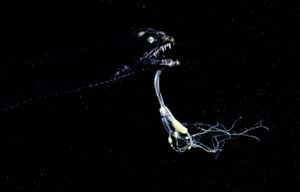stalk the most main streetThe reader wonders about the nature of this relationship — do they even really know each other? Is this more to do with poetic influence? Without conducting a bunch of research, we’re not sure. And, at least in terms of the experience of reading these poems, it doesn’t really matter.
uninterested in pacing or
what this town has to offer
in graceful rust. No one
wants me, Carrie, in the way
I want the slick street.
Anyone wants me, Carrie —
anyone wants the obvious
metals I know.
There is much in Obvious
Metals that is ambiguous and ambivalent, and that is I think part of its
charm. Most of the poems herein rely on
an emphatic “I” voice, a speaker who purports to assert the first person, but
who at the same time never really reveals much about herself. Aside from the declaration that she is “mean
/ to strange men” (“Proving a Bird”) or that “I can lie / this easily // and so
/ can live” (“A Body in Distress”) or that “I aspire / to find you / welcome”
(“Attempts at Spirits”), this is largely a poetry of purposeful
obfuscation. At times, Fridman verges on
outright surrealism/dadaism, as for example in “Dyad”:
the boy down in front
was in trouble for real
Yet, in an oblique manner, Fridman also makes arguments about what it’s like to live in this world, in a society, where real connection is difficult and one is left seeking protection “on a grey / street”, metaphorically asserting oneself a bird “play[ing] lamely // at the feet / of the sun” (“Proving a Bird” again). Or, one emulates a bear, storing up fat for hibernation. Yet this same bear also acts on a communal level and “delivers / on a promise // when it tells its friends / where food” (“What’s Fatty”).
the salt shaker had
become the orient
had an awkward roomy
alibi all crust
For that matter, let’s look at those lines from “Attempts at
Spirits” again. “I aspire / to find you
/ welcome” on one level suggests the speaker’s hesitance about her relationship
with someone or other. In other words,
the person addressed is seemingly not or not yet fully welcome. But Fridman’s use of enjambment here also
allows a slightly different reading. “I
aspire” gets its own line, emphasizing a sense of hopefulness in the situation. Read together, the phrase “I aspire to find
you” certainly lends weight to this idea.
Then, the fact that the single word “welcome” gets a line to itself
actually implies that the addressee is in fact quite welcome in her
company. Taken together, we might read
this passage something like, “I am open to connecting with (finding) you —
welcome!”
The physical rendering of Fridman’s words on the page is
thus to fore, and in that regard she might be seen as a contemporary
practitioner of Objectivism, whose foremost figures (Zukofsky, Oppen,
Niedecker, et al.) at times exhibited similarly oblique qualities, also
similarly often resolved with repeated readings. And though I haven’t read Carrie Lorig as
extensively as I perhaps should (some pieces online), it seems that she herself
works in a similar mode and so makes an apt dedicatee here. Dense at first, Obvious Metals gives pleasure in its density, in its unexpected
suggestion(s), its eschewal of obviousness.
As Fridman herself concludes in the book’s final poem, “Take the Call,”
“can any explanation / dispel” — the answer, I suppose, is just take the call
and see what happens. . .
























No comments:
Post a Comment